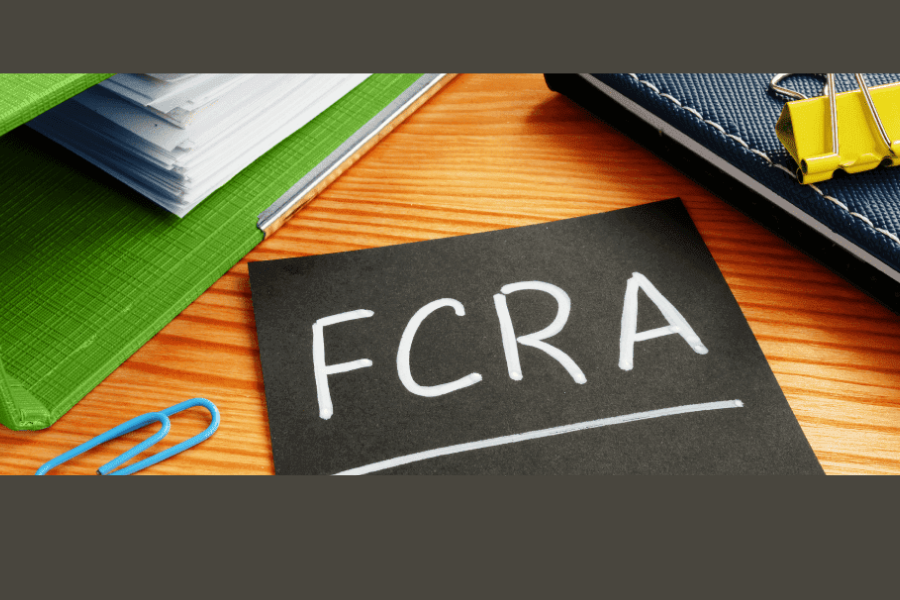
4Feb
2022
Why should you care about the FCRA?
We are all consumers at one point or another in our lives.
You like to avoid significant settlements.
• The FCRA is the source of hyper-technical lawsuits.
• Over 4900 cases filed in 2019
• Over the last ten years, the cost to employers was over $234,00,000.
The FTC (Federal Trade Commission) and CFPB (Consumer Financial Protection Bureau) also oversee background checks.
How can you comply?
As highlighted in our previous article, it takes many players to create an FCRA compliant background check process.
What are the Employer’s responsibilities?
Before you process a background check
Section 604 (b) requires that the Employer has a Permissible purpose.
Employers have a permissible purpose of ‘Employment Purposes’ when running a background check. This need is simple to do and is taken care of when you apply for screening services. You should also certify whenever processing a background check request.
Section 604 (b)(2) is effortless as well but has led to many class-action lawsuits.
Your disclosure and authorization forms need to be ‘clear and conspicuous.’
What does that even mean?! Could they be on the same page? Should it be separate? Is there a limitation on the jargon you can include? All we are trying to do is reduce the forms we use!
Now that you have updated your forms, how can you make sure that you are only using the updated version?!
After you process a background check
All employment decisions are the employers.
If you are to take an adverse action based on the information provided, then per section 604 (b)(3), you need to start the Adverse Action process.
The adverse action process is a two-step process.
• Pre-Adverse Action
• Adverse Action
Pre-Adverse
The Employer has yet to make a final decision. The Pre-Adverse Action letter informs the candidate that there have been findings on their background check. This letter provides your candidate a copy of their report, a summary of their rights, and contact information of your screening provider. Your candidate is now able to discuss or dispute any incorrect information, with your screening provider.
Adverse Action
You have now decided to take an Adverse Action (e.g., not to hire, promote, etc.). You need to provide the candidate with an Adverse Action letter.
What about during a background check?
Several factors affect the results a background screening provider can and cannot provide you. Have a conversation with your screening provider about reporting limitations.
Be proactive
Review your disclosure and authorization forms, and your processes to make sure you are making your best effort to follow the FCRA regulations.
Have a conversation with your screening provider to ensure HR confidence in background checks and let them help you. Share pertinent information with them so they can help you out. Things that could guarantee a productive conversation with your provider include the States you operate in, types of positions you have, your recruiting process, and others.
With this information in hand, your screening provider is more equipped to provide suggestions for improvement to your application and background check process.
This information is provided as a courtesy, may change, and is not intended as legal guidance.
Source: Settlement amounts and number of cases www.goodjobsfirst.org